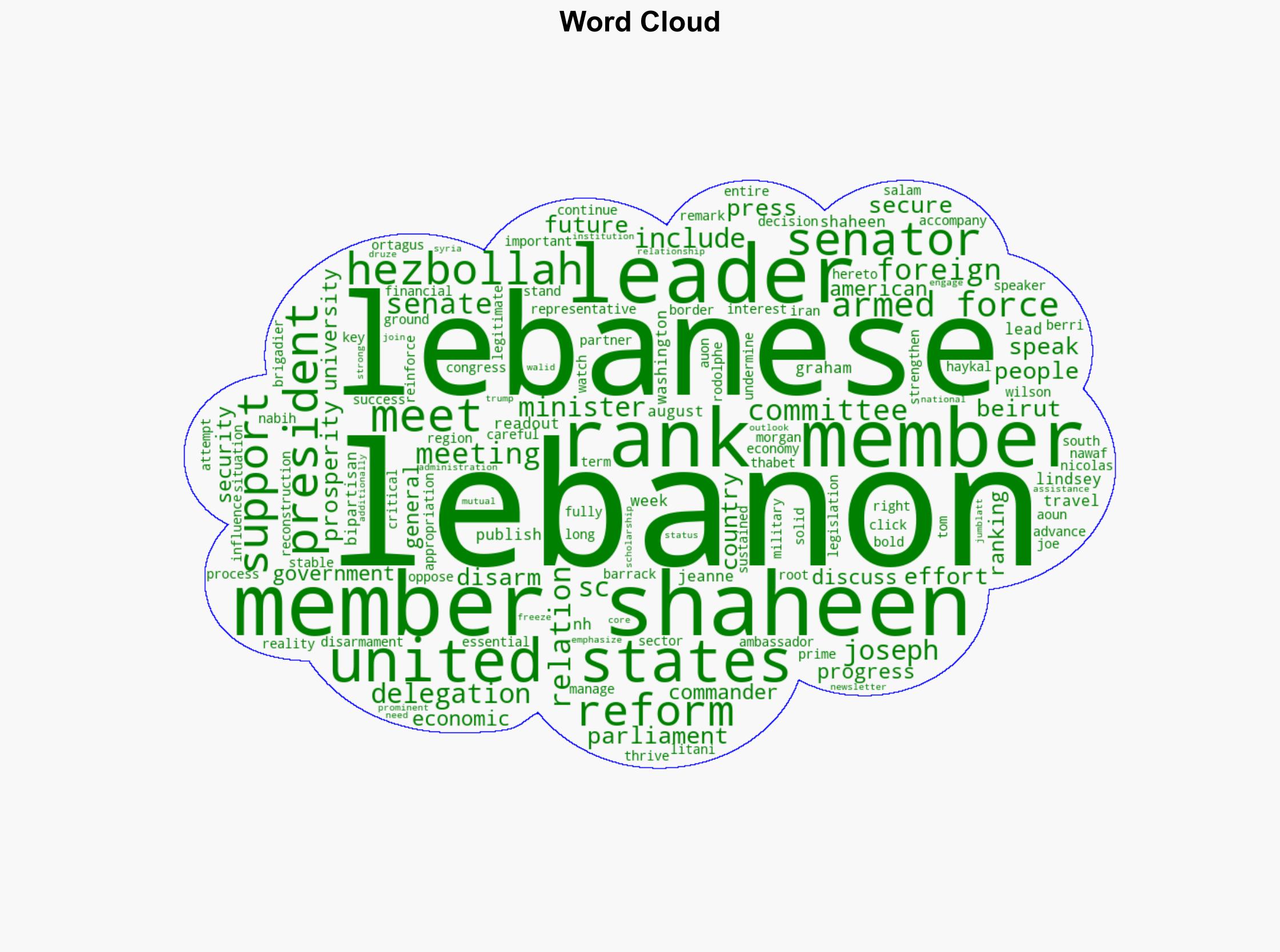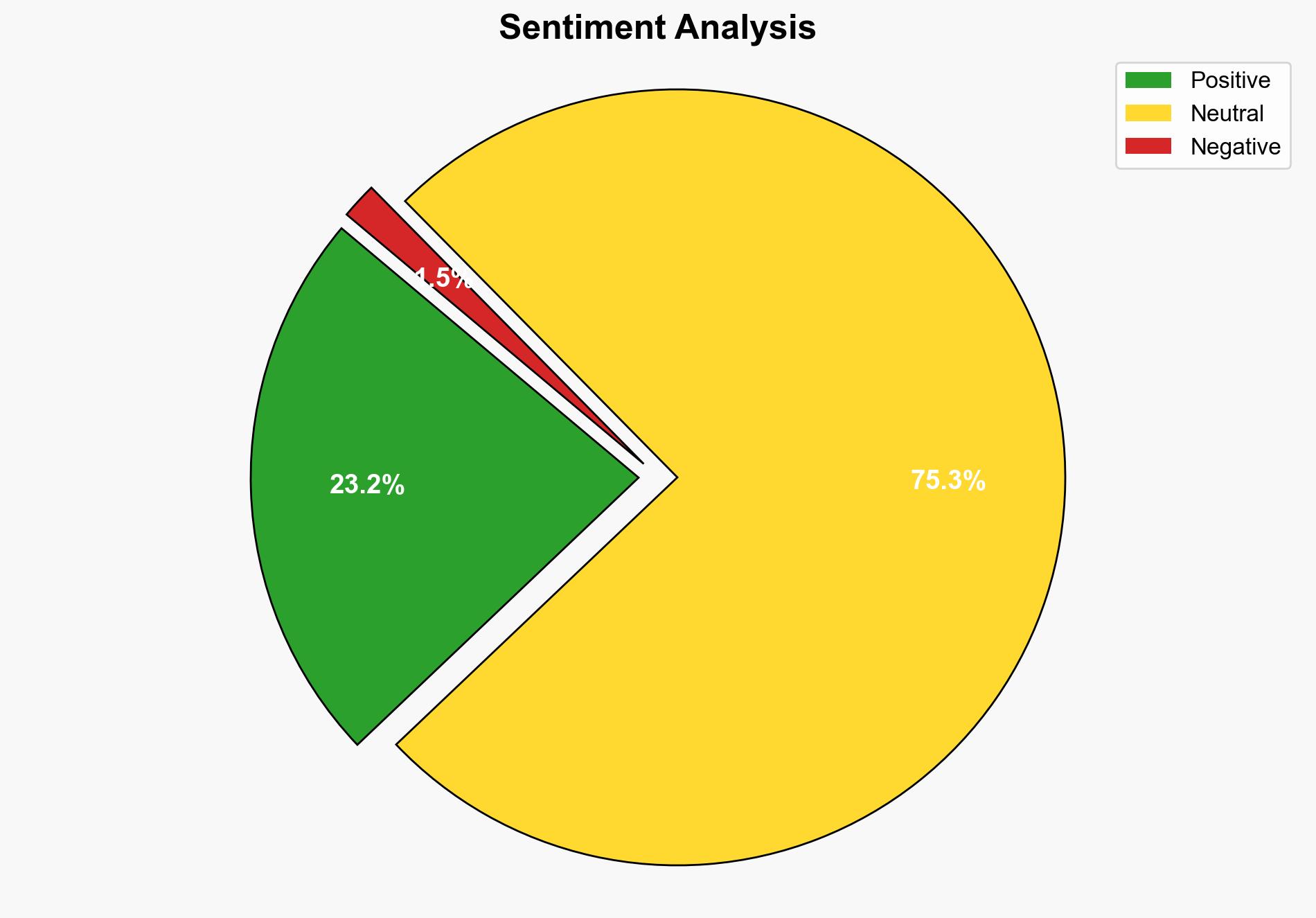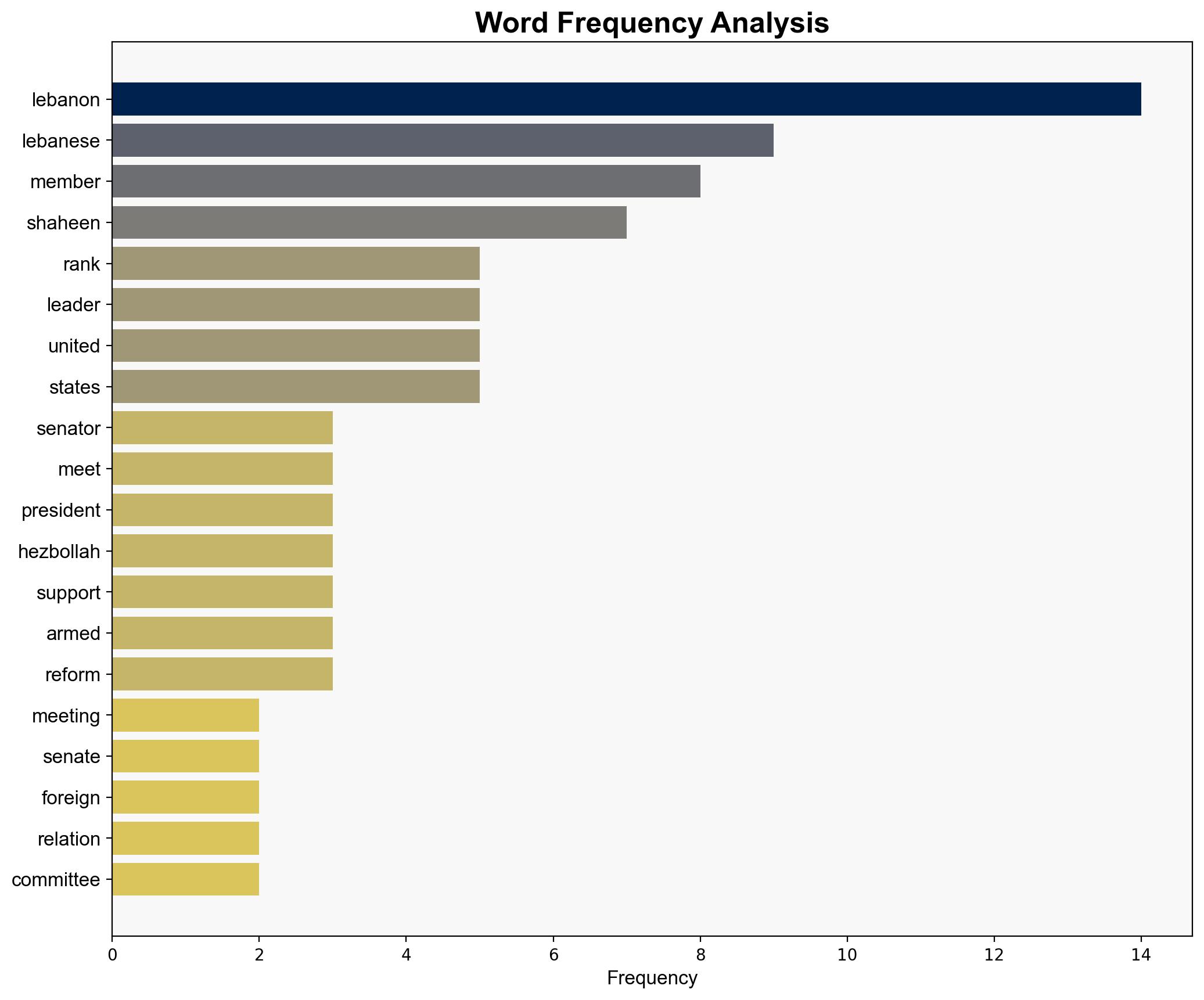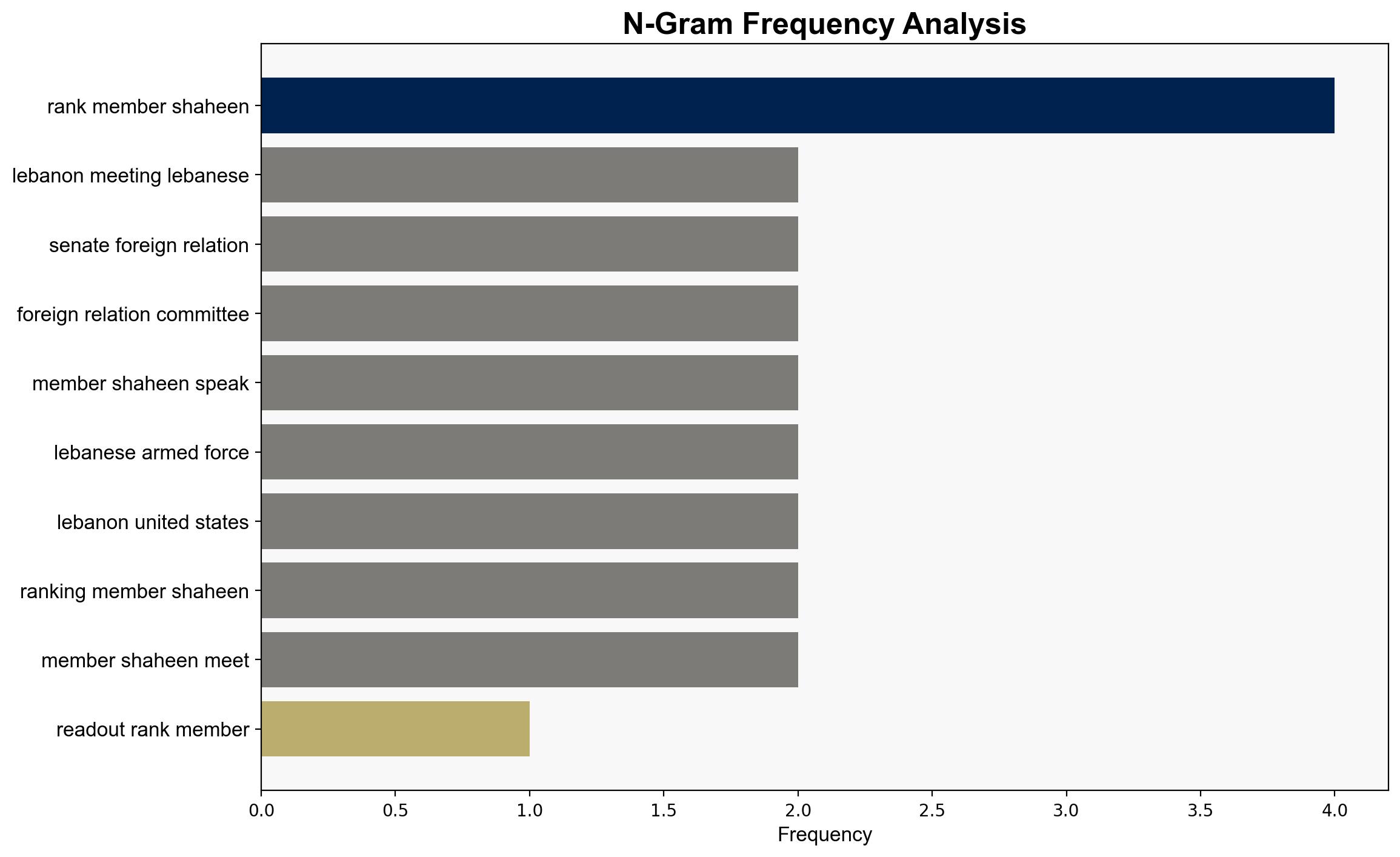READOUT Ranking Member Shaheen’s Travel to Lebanon and Meetings with Lebanese Leaders – Globalsecurity.org
Published on: 2025-08-29
Intelligence Report: READOUT Ranking Member Shaheen’s Travel to Lebanon and Meetings with Lebanese Leaders – Globalsecurity.org
1. BLUF (Bottom Line Up Front)
The most supported hypothesis is that the U.S. delegation’s visit to Lebanon aims to bolster Lebanese governmental and military institutions to counteract Hezbollah’s influence and Iran’s regional sway. Confidence level: Moderate. Recommended action includes sustained diplomatic engagement and increased support for Lebanese Armed Forces (LAF) to stabilize Lebanon and reduce Hezbollah’s power.
2. Competing Hypotheses
Hypothesis 1: The U.S. delegation’s visit is primarily aimed at strengthening Lebanese institutions to counter Hezbollah and Iran’s influence, ensuring regional stability.
– **Supporting Evidence:** Emphasis on disarmament of Hezbollah, strengthening LAF, and economic reforms.
Hypothesis 2: The visit is largely symbolic, aimed at showcasing U.S. support without significant shifts in policy or resource allocation.
– **Supporting Evidence:** General statements of support without concrete commitments, potential lack of follow-through on past initiatives.
3. Key Assumptions and Red Flags
– **Assumptions for Hypothesis 1:** The U.S. has the capability and willingness to significantly influence Lebanese internal affairs. Lebanese leaders are receptive to U.S. support against Hezbollah.
– **Assumptions for Hypothesis 2:** U.S. domestic politics and budget constraints limit substantial foreign aid. Lebanese leaders may not fully align with U.S. objectives.
– **Red Flags:** Lack of specific commitments or timelines for U.S. support. Potential overestimation of U.S. influence in Lebanon.
4. Implications and Strategic Risks
– **Economic Risks:** Failure to support Lebanese economic reforms could lead to further instability.
– **Geopolitical Risks:** Escalation of tensions with Hezbollah and Iran if U.S. actions are perceived as aggressive.
– **Psychological Risks:** Erosion of U.S. credibility if promises are not fulfilled, potentially driving Lebanon closer to other regional powers.
5. Recommendations and Outlook
- Enhance diplomatic efforts with Lebanese leaders to ensure alignment on reform and security objectives.
- Increase funding and training for the LAF to strengthen internal security capabilities.
- Scenario Projections:
- Best Case: Successful disarmament of Hezbollah and economic stabilization.
- Worst Case: Increased Hezbollah influence and economic collapse.
- Most Likely: Incremental progress with ongoing challenges from Hezbollah.
6. Key Individuals and Entities
Jeanne Shaheen, Lindsey Graham, Joe Wilson, Joseph Aoun, Nawaf Salam, Nabih Berri, Tom Barrack, Morgan Ortagus, Rodolphe Haykal, Nicolas Thabet, Walid Jumblatt.
7. Thematic Tags
national security threats, counter-terrorism, regional focus, geopolitical strategy




